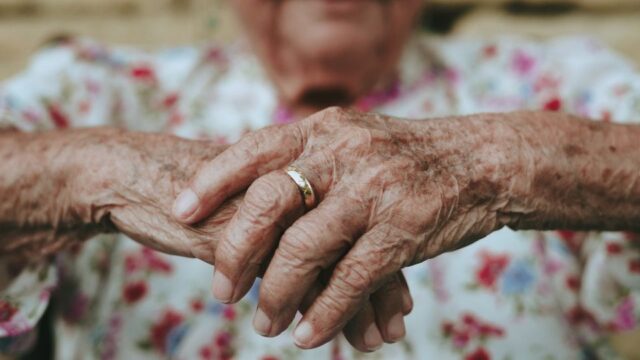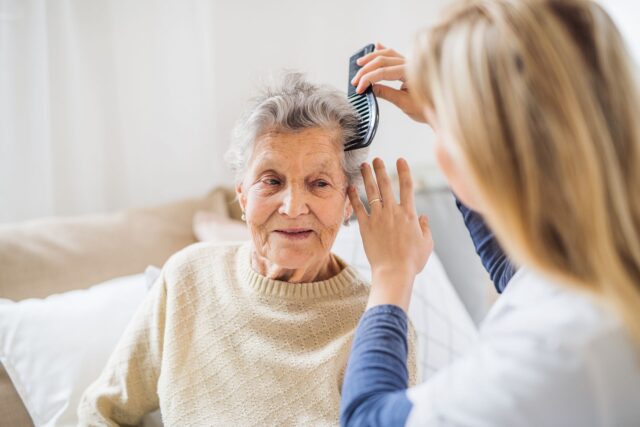As people get older, the desire to maintain their independence and remain in their own homes becomes increasingly important. However, it’s essential for family members to be vigilant and attuned to potential signs that indicate an elderly individual may be struggling to cope with the challenges of living at home.
While maintaining independence is crucial for seniors, certain challenges can arise, potentially impacting their well-being and ability to stay home safely. If you suspect a loved one is struggling, consider seeking professional support, including consultations for quality dental implants in San Leandro CA to ensure their overall health and comfort.
This article explores various tell-tale signs that may signify your elderly loved one is facing difficulties, and it offers insights on how to address these issues with compassion and practical solutions.
Physical Changes

One of the most noticeable signs that an elderly loved one may be struggling at home is a decline in physical health. Keep a watchful eye for changes in mobility, such as difficulty walking or maintaining balance. Unexplained bruises or injuries could also be indicative of falls or accidents that might be occurring in the home. Additionally, weight loss or gain, changes in personal hygiene, and difficulty in managing basic self-care tasks are red flags that shouldn’t be ignored.
Addressing Physical Changes:
- Schedule regular checkups with healthcare professionals to monitor and address any underlying health issues.
- Consider installing handrails and non-slip surfaces in key areas of the home.
- Hire a caregiver or enlist the help of family members to assist with daily activities.
Changes in Cognitive Function

Cognitive decline is a common concern for aging individuals, and signs of memory loss or confusion may become apparent. Forgetfulness about important tasks, appointments, or medication schedules can pose serious risks. Additionally, an inability to manage finances or keep track of daily activities may indicate cognitive challenges.
Addressing Cognitive Changes:
- Consult with a healthcare professional to assess cognitive function.
- Implement strategies such as setting up a daily routine, using reminder apps, and simplifying the home environment.
- Consider involving a professional caregiver or family member to provide consistent support.
Social Withdrawal
Isolation and withdrawal from social activities are significant indicators of an elderly person struggling at home. Pay attention if your loved one no longer participates in hobbies, refuses invitations, or exhibits a general disinterest in maintaining social connections. Loneliness can have severe implications for mental and emotional well-being.
Addressing Social Withdrawal:
- Encourage social interactions by organizing regular visits from friends, family, or community groups.
- Explore local senior centers or clubs that offer activities tailored to their interests.
- Consider hiring a companion or arranging for in-home care to provide companionship.
Decline in Personal Appearance and Dressing Habits

A noticeable decline in personal grooming and dressing habits can be a clear indicator that an elderly loved one is struggling at home. If you observe your loved one neglecting their personal hygiene, wearing the same clothes repeatedly, or having difficulty managing the basics of dressing, it may suggest challenges in maintaining daily routines.
Addressing Changes in Personal Appearance:
- Encourage and assist with maintaining a daily grooming routine, emphasizing the importance of personal hygiene.
- Simplify wardrobe choices to make dressing easier, considering comfortable and easy-to-manage clothing.
- Consider the assistance of a caregiver to help with personal care tasks and promote a sense of dignity and well-being. Pursuing options for residential care might also be a solution. Places like stanshawescarehome.com offer help and assistance in personal care as well as health and medication management.
Changes in Home Environment
A once-tidy home becoming increasingly disorganized or cluttered may indicate difficulties in managing daily tasks. Check for unopened mail, unpaid bills, or neglected household chores. Issues with home maintenance, such as a lack of necessary repairs, could further contribute to an unsafe living environment.
Addressing Changes in the Home Environment:
- Schedule regular home inspections to identify safety hazards and address maintenance issues promptly.
- Hire a cleaning service or enlist the help of family members to maintain a clean and organized living space.
- Explore home modifications, such as installing ramps or handrails, to enhance safety.
Neglect of Medication and Health Management
Failure to adhere to prescribed medication schedules or seek medical attention when needed is a critical sign of an elderly individual struggling to manage their health. Missing doses of medication or not following prescribed treatments can lead to serious health complications.
Addressing Medication and Health Management:
- Organize medications using pill organizers or medication management apps.
- Establish a system for regular health checkups and consultations with healthcare providers.
- Consider enlisting the help of a caregiver to assist with medication management and accompany your loved one to medical appointments.
Unexplained Financial Changes
Significant and unexplained financial changes, such as unpaid bills, unusual purchases, or financial scams, may indicate that an elderly loved one is struggling to manage their finances effectively. Cognitive decline can contribute to poor decision-making and susceptibility to financial exploitation.
Addressing Financial Changes:
- Set up automatic bill payments and financial alerts to monitor unusual transactions.
- Work with your loved one to create a budget and financial plan.
- Be vigilant about potential scams and educate your loved one on common fraud tactics.
Changes in Eating Habits and Nutrition

A significant shift in eating habits, weight loss, or malnutrition can be an indication that an elderly individual is struggling at home. This may manifest as skipped meals, a lack of interest in cooking, or the consumption of unhealthy and convenience foods. Poor nutrition can exacerbate existing health issues and contribute to a decline in overall well-being.
Addressing Changes in Eating Habits:
- Collaborate with a nutritionist to create a balanced and manageable meal plan that aligns with dietary needs and preferences.
- Encourage the use of meal delivery services or assistance with grocery shopping to ensure a steady supply of nutritious food.
- Schedule regular family meals or visits to provide social support and make eating a more enjoyable experience.
By paying attention to changes in eating habits and nutrition, you can address potential health concerns and promote a healthier lifestyle for your elderly loved one, enhancing their overall quality of life.
Recognizing the tell-tale signs that an elderly loved one is struggling at home is crucial for ensuring their well-being and safety. Addressing these signs promptly with compassion and practical solutions can help support their desire to age in their own place while maintaining a good quality of life.
Regular communication, professional assistance, and a proactive approach to addressing challenges will contribute to creating a safe and supportive environment for aging loved ones.









